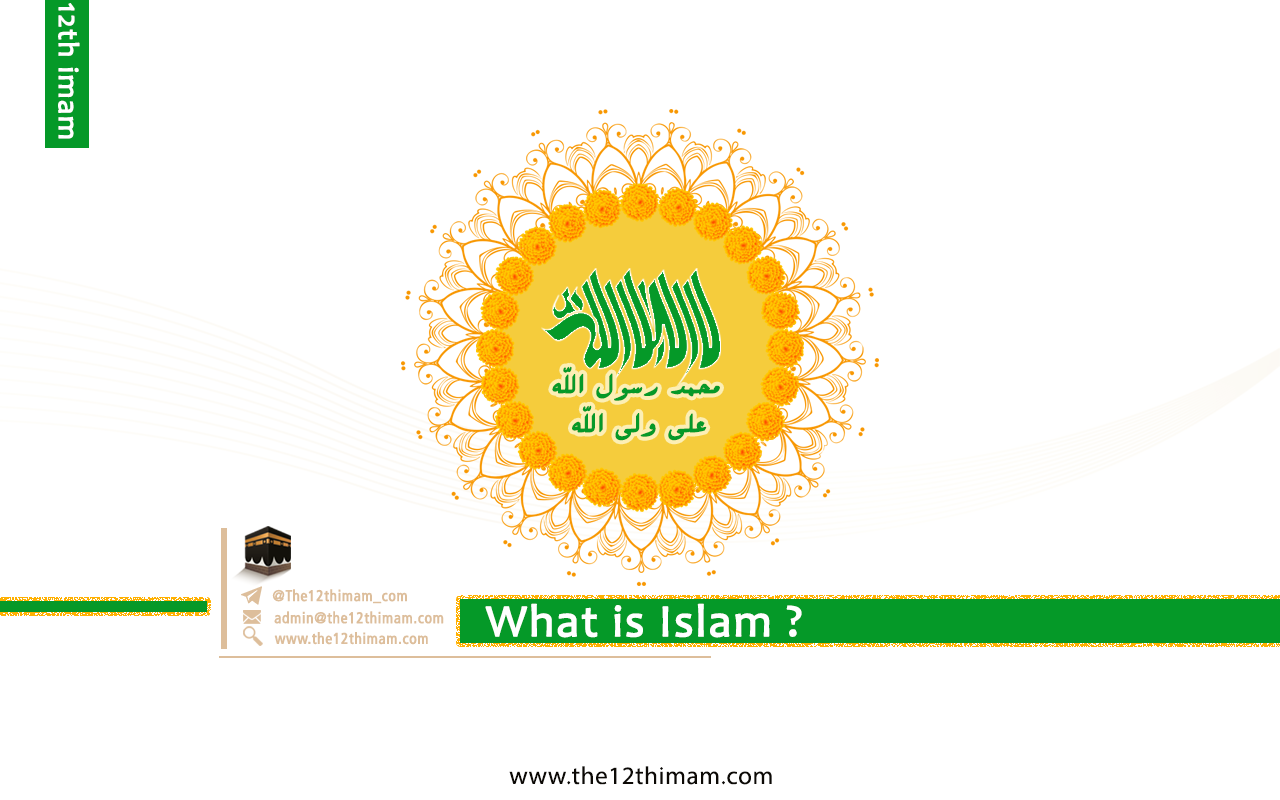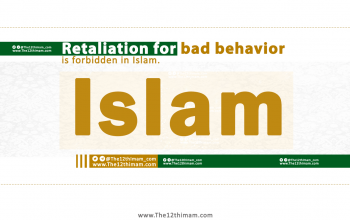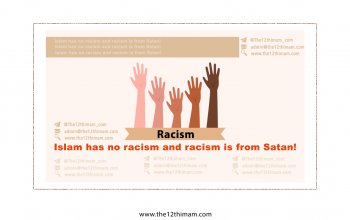What is Islam?
God in His mercy had sent messengers to convey us, to different peoples, in different times. Each prophet came with guidance and miracles that were relevant for his time and for his people, but the message was the same: That there is only one God and worship is for him alone.
This “Islam” is the same as the religions brought by all the prophets of God. Islam is the same as the religion of Adam, Noah, Abraham, Moses and Jesus (peace be upon them all) but with more details. God has in His Grace, addressed this issue to man in His final revelation, the Noble Quran.
“Do they seek other than the
religion of Allah (God)? When to him submit all creatures in the heavens
and on the earth; and to him, they shall all be returned (83). Say [O,
messenger]: “we believe in Allah (God) and in what has been sent down to
us, and what was sent down to Abraham, Ishmael, Isaac, Jacob and the
sons of Jacob and what was given to Moses, Jesus and to [other]
messengers from their creator and nurturer; we consider no
discrimination between one and another among them and to Allah, we are
submitted”. (84)
(Surah Al-e-Imran, verse 83, 84)
Man was to follow each prophet when he came, till the advent of another prophet Thus the latter prophet was followed since there was new guidance relevant to that latter time. Miracles were also for that time and for those people. All this is evident. For example, when Jesus (PBUH) said to the Children of Israel:
“And I have come to attest what was before me of the Torah and to make lawful to you certain things that were forbidden before; I have come to you with a Sign from your creator And Nurturer, so fear from the disobedience of Allah’s commands and obey me.” (Surah Al-e-Imran, verse 50)
Consequently, God has sent the prophet Muhammad (PBUH) as His last messenger to mankind. This implies that he must come with a complete and clear guidance, and a clear proof, for all humanity and all times till the Last Day. Otherwise the message is void. Also, the message must be confirming the previous messengers of before. The revelation, guidance, and miracle he received is the Quran.
Now, let’s see more about this last religion, Islam.
Islam (/ˈɪslɑːm/; Arabic: اسلام) is a verbal noun originating from the root “S-L-m” which forms a large class of words mostly relating to concepts of wholeness, safeness and peace. It is an Abrahamic religion articulated by the Quran. It is revealed to the prophet Muhammad (PBUH), the last prophet of God. The adherent of Islam is called Muslim. Today, Muslims are known in 2 main groups: Shia and Sunni.
In Islam God is called Allah. Other non-Arab Muslims might use different names as much as Allah, for instance “Tanri” in Turkish, “Khodā” in Persian or Ḵẖudā in Urdu.
Allah is described in Surah Al-Ikhlas in the Quran as: “Say [O, Messenger!]: “Allah is the one and the only creator (1) Allah is the Absolute independent,[free from all attachment](2) Neither he has a son nor a daughter, nor he is born of any other being (3) And there is no equal, no match and no mate for Allah, the Almighty (4).” (Surah Al-Ikhlaas)
Allah is the term with no plural or gender used by Muslims and Arabic-speaking Christians and Jews to reference God. In addition, Muslims and Jews repudiate the Christian doctrine of the Trinity and divinity of Prophet Jesus (PBUH), comparing it to polytheism.
In Islam, Muslims are not expected to visualize God. God is described and referred to by certain names or attributes, the most common being “Al-Rahman”, meaning “The Compassionate” and “Al-Rahim”, meaning “The Merciful”.
In Islam, Allah is viewed as a personal god who responds whenever a person in need or distress calls him. There are no intermediaries, such as clergy, to contact God who states, “…And [through the embracing knowledge] we are nearer to him [Human] than his jugular vein.” (Surah Qaf, verse 16)
Also, the creation of everything in the universe was brought into being by Allah’s sheer command, “…Be, and it comes to existence,”
General Principles of Islam
In Islam there are 5 main principles are called Osul-e-Din (the principles of the religion):
- Tawhid (Shia and Sunni belief)
- Nabuwwah (Shia and Sunni belief)
- Ma’ad (Shia and Sunni belief)
- Adalah (just Shia Belief)
- Imamate (just Shia Belief)
Tawhid (Oneness)
In Islam, Tawhid means to assert the unity of God, it is not just unity of Allah Almighty but also Uniqueness, as defined in Quran Surah 112(Al-Ikhlas), He is not born of anyone nor gave birth to any one, nor is any one like Him. The opposite of Tawhid is “Shirk”, which means “Association” or “Partnership” in Arabic. In Muslims view, polytheism and idolatry is known as “Shirk”.
Tawhid is the most important principle that each Muslim must believe it. Also, Tawhid is mentioned in the other Abrahamic religions. (Uniqueness and unity of God is distorted in Christian religion)
Nabuwwah (Prophet Hood)
“Nabuwwah” means “Prophet Hood”. It comes from the world “Nabi” that is mentioned in Old Testament too, as the meaning of God’s messenger. Nabi denotes that God has appointed Prophets and Messengers to teach mankind the religion. Religion is the perfect system of how to live in “peace” or “submission to God”. Prophets are Messengers which are appointed by God to bring the message of God to people and spread that message while the Imam (leader) is appointed by God to protect that message since ordinary people will fail to do so.
If people were left with the message alone, the true message could not survive long and would have undergone changes. Imams were therefore appointed to take care of the message and prevent people from going astray after the last prophet.
Nabi receives inspiration in three ways. Sometimes, God reveals directly to his heart. Sometimes, God reveals facts on something such as mountain or tree (like Moses who Allah spoke to him by a tree). The third way of revelation is sending messages to the Nabi (prophet) by an angle.
Ma’ad (The Day of Resurrection and judgment)
Yaum al-Qiyamah or “Day of the Resurrection“, also known as “Day of the Account”, “Day of the Gathering”, and the “Great Announcement”.
Ma’ad is a fundamental tenet of faith in Islam. After the annihilation of this world, Allah will raise mankind for Judgment. The trials and tribulations of Resurrection Day are detailed in the Quran.
In Surah al-Zalzalah describes this as, “then he who has done a particle-weight of good shall see it, [and shall receive the reward for it] (7). And he who has done a particle-weight of evil shall see it [and shall receive the recompense for it] (8).” (Surah Al-Zilzal, verse 7, 8)
Also, The Quran lists several sins that can condemn a person to hell, such as disbelief in God, and dishonesty; however, the Quran makes it clear God will forgive the sins of those who repent. Deeds, such as charity, prayer and compassion towards animals, will be rewarded with entry to heaven. Muslims view heaven as an eternal place of joy and bliss, with Quranic references describing its features and the physical pleasures to come.
They believe the time of “Resurrection Day” is preordained by Allah but unknown to man. Every human, Muslim and non-Muslim alike, is held accountable for his or her deeds and are judged by Allah accordingly.
In fact, Allah revive human to reward benefactors and punish wicked as he has promised in all Abrahamic religions especially in the Quran.
Adalah (justice)
Adalah is described in Shia theology as one of the principles of Islam. It comes from the root “A-D-l” as the meaning of justice. Adalah is a quality of Allah that includes following meanings:
- It means everything Allah does is based on benefit and wisdom
- It means all human are the same before Allah and they are equal, no one is superior than the others unless by virtue
- It means Justice, i.e. Allah never ignores even the smallest positive or negative deeds of mankind
- It means Allah has created every creature in right position, by materials that exactly is needed for that creature and finally, there are an equality and appropriateness through all creatures and phenomena in the whole universe
- It means the creation of the whole universe is based on a purpose and nothing is aimless or vain
Imamate (Leadership)
As it is mentioned before, Imam should continue the revolution of the prophet and be leader after the prophet. Islam prescribes very high qualification for a divine leader. He should be the most knowledgeable, the wisest, and the most gallant of all people. He should also be immune from every kind of sin, mistake and error. So, Imams are determined by God, before and their names and their signs is revealed to the prophet. This is just described in Shia theology as another principles of Islam.
Other important issues in Islam
Testimony (Shahadah)
The Shahadah (شهاده), which is the basic creed of Islam that must be recited with the specific statement:
اَشهدُ انْ لا اِلٰهَ الا الله و اَشهدُ انَّ محمّداً رسولُ الله و اَشْهَدُ أَنَّ عَلِیاً وَلِی اللّهِ
“‘ash’hadu ‘an-lā ilāha illā-llāhu wa ‘ash’hadu ‘anna muhammadan rasūlu-llāh wa Ashhad-u anna ʿAlī-yyan walī-yyu Allāh “, “I testify that there are no deities other than Allah alone and I testify that Muhammad is his Messenger and I testify that ‘Ali is the wali of Allah . ”
This testament is a foundation for all other beliefs and practices in Islam. Muslims must repeat the shahadah in prayer, and non-Muslims wishing to convert to Islam are required to recite the creed.
Prayer (Salah/صلاه)
Daily prayers, called Ṣalah or Ṣalat in Arabic, Namaz (نماز) in Persian, must be performed five times a day. Salat is intended to focus the mind on God, and is seen as a personal communication with him that expresses gratitude and worship. Salat is compulsory but flexibility in the specifics is allowed depending on circumstances. The prayers are recited in the Arabic language, and consist of verses from the Quran. The prayers are done with the chest in direction of the Qibla (Kaba, Mecca) though in the early days of Islam.
A Mosque is a place of worship for Muslims, who often refer to it by its Arabic name, “Masjid”. The word “Mosque” in English refers to all types of buildings dedicated to Islamic worship, although there is a distinction in Arabic between the smaller, privately owned mosque and the larger, “collective mosque” (Masjid jāmi). Although the primary purpose of the mosque is to serve as a place of prayer, it is also important to the Muslim community as a place to meet and study. Al-Masjid al-Nabawi the Prophet’s Mosque in Medina was also a place of refuge for the poor. Modern mosques have evolved greatly from the early designs of the 7th century, and contain a variety of architectural elements such as Minarets.
Fasting
Fasting, (Arabic: صوم ṣawm), Rouzeh/روزه in Persian, avoiding from food and drink (among other things) must be performed from dawn to dusk during the month of Ramadan (Lunar month). The fast is to encourage a feeling of nearness to Allah, and during it Muslims should express their gratitude for and dependence on him, atone for their past sins, and think of the needy. Sawm is not obligatory for several groups for whom it would constitute an undue burden. For others, flexibility is allowed depending on circumstances, but missed fasts usually must be made up quickly.
Alms-giving
“Zakat” (Arabic: زكاة ) is giving a fixed portion of accumulated wealth by those who can afford it to help the poor or needy and for those employed to collect Zakat; also, for bringing hearts together, freeing captives, for those in debt (or bonded labor) and for the (stranded) traveler. It is considered a religious obligation that the well-off owe to the needy because their wealth is seen as a “trust from God’s bounty”. The Quran and the Hadith(the quotes of Prophets and Imams) also urge a Muslim to give even more as an act of voluntary alms-giving called Sadaqah (صدقه).
Hajj Pilgrimage
The pilgrimage, called the Hajj (Arabic: حج) has to be done during the Islamic month of Dhu al-Hijjah in the city of Mecca. Every able-bodied Muslim who can afford it must make the pilgrimage to Mecca at least once in his or her lifetime. Rituals of the Hajj include: spending a day and a night in the tents in the desert plain of Mena, then a day in the desert plain of Arafat praying and worshiping Allah, following the footsteps of Prophet Abraham (PBUH). Then spending a night out in the open, sleeping on the desert sand in the desert plain of Muzdalifah, then moving to Jamarat, symbolically stoning the Devil ( the symbol of Devil is Obelisk) recounting Prophet Abraham’s actions. Then going to Mecca and walking seven times around Kaba which was built as a place of worship by Prophet Abraham (PBUH), Then walking seven times between Mount Safa and Mount Marwah recounting the steps of Prophet Abraham’s wife, while she was looking for water for her son Ismael in the desert, before Mecca developed into a settlement. The purpose of all is first to be far from all material relations and just think about God, and second to remind Abraham’s sufferings about establishing the religion of God and be thankful that we are not from idolatries.
Jihad
Jihad means “to strive or struggle in the way of Allah”. Depending on the object being a visible enemy, the devil, and aspects of one’s own self (such as sinful desires), different categories of jihad are defined. Jihad, when used without any qualifier, is understood in its military aspect. Jihad also refers to one’s striving to attain religious and moral perfection. Some Muslim, especially Shia, distinguish between the “greater jihad”, which pertains to spiritual self-perfection, and the “lesser jihad”, defined as warfare.
Jihad is the only form of warfare permissible in Islamic law and declared against illegal works, terrorists, criminal groups, rebels, apostates, and leaders or states that oppress innocent people.
Etiquette and diet
Many practices fall in the category of Adaab (behavior) and Islamic dietary laws, or Islamic etiquette. This includes greeting others with “Salam” or “as-salamu `alaykum” (“peace be on to you”), saying Bismillah (“in the name of Allah”) before meals, and preferring to use the right hand for eating and drinking. Islamic hygienic practices mainly fall into the category of personal cleanliness and health. Circumcision of male offspring is also practiced in Islam. Islamic burial rituals include “funeral prayer” over the bathed and enshrouded dead body, and burying it in a grave.
In Islam, guests are known as the friends of Allah and Muslims are wanted to respect their guests and welcoming them as best as possible. Islam wants human to be like brothers and sisters so that help each other, be well-behaved, respect to each other especially to the elders, women and children.
There are some restrictions for Muslims foods include not having pork products, blood, carrion, and alcohol. All meat must come from an herbivorous animal slaughtered in the name of Allah. Permissible Food for Muslims is known as “Halal” food.
Family life
The basic unit of Islamic society is the family, and Islam defines the obligations and legal rights of family members. The father is seen as financially responsible for his family, and is obliged to cater for their well-being. The division of inheritance is specified in the Quran, which states that most of it is to pass to the immediate family, while a portion is set aside for the payment of debts and the making of bequests. Marriage in Islam is a civil contract which consists of an offer and acceptance between two qualified parties in the presence of two witnesses. The groom is required to pay a bridal gift (Mahr) to the bride, as stipulated in the contract.
In Islam, Mother has the main role of children breeding and training, that is why Allah gave a mother mercy and patience (two of his qualities). A Muslim woman should be able to bring honest and nice children up who have advantages for their society, those children can make a family in the future and as a result, we will have an excellent society.



